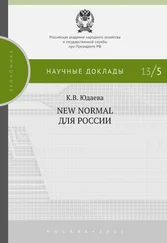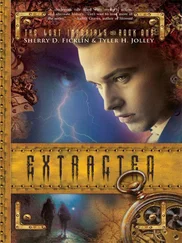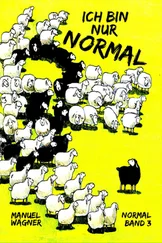D.J. Connell
Sherry Cracker Gets Normal

To my funny, remarkable mother Marion and her accomplice,
my excellent sister Jocelyn.
1
I can now safely say that nothing in life is…
2
I must have had expectations because I was disappointed when…
3
I have seen the man in the fuchsia trench coat…
4
The idea of normality was flashing in my mind’s eye…
5
Someone had been busy while I was in the café.
6
Saturday afternoon began in a damp way with light drizzle…
7
‘Nigel!’ I said, turning. ‘I didn’t expect to see you…
8
The scene I had witnessed replayed over in my mind…
9
‘Your future lies in my hands,’ called the woman from…
10
I stopped under the streetlamp at the corner and looked…
11
I awoke with a start, my heart racing. My eyes…
12
‘Old golfers never die. They just lose their drive,’ read…
13
Roger Bottle did not notice me walk up to his…
14
The bus was moving off when a familiar shade of…
15
Jocelyn stopped outside the door of the Mandarin restaurant and…
16
Nigel nudged me as the number two bus approached the…
17
I circled the pole several times and came to the…
18
As the bus reached the centre of town, I pushed…
19
I felt strangely invigorated as I strode away from the…
20
I looked around but saw no sign of the Dutty.
21
I put my ear to the door and heard a…
22
Herb Alpert’s barks were reverberating inside the stairwell as I…
23
Nigel poked his head in the office and looked around…
24
‘So it is true,’ I said. ‘You do have a…
Acknowledgments
About the Author
Other Books by D.J. Connell
Copyright
About the Publisher
I can now safely say that nothing in life is random. Everything that occurs is connected to whatever has gone on before. If I had not visited Industry Drive I would not have seen the sign and taken an interest in the mayoral campaign. The cardboard square had been stapled to a wooden stake: ‘Visit the site of Roger Bottle’s proposed factory. Globcom – providing safe, efficient cleanup solutions.’ I did not follow the arrow because this would have taken me back the way I had come and that was the last thing I wanted to do. The sign had aroused my curiosity and I made a mental note to follow it up.
I did not always understand the non-random principle. I had to learn it the hard way through a process called the Learning Curve. Apparently, the Learning Curve is a normal part of human experience. This is a comforting fact because, at least in this, I am like other people.
When I apply the non-random principle to the events of my life, I see them as a linear series of theatre scenes connected by an orange electrical cable that charges the dramatic incidents with confusion and opportunity. To get to the present day, the current has to run through all the earlier scenes, which means the decisions my mother made for me as a child still affect the way things work now.
It was my mother who chose our family dentist and it was the dentist who put me off power tools for life. The dentist must have been careless because as a young man he lost three fingers to a whirling chainsaw. I do not know how many times I have imagined this accident. I am thinking of it again right now. It happens very fast. The dentist attempts to pick up the power tool by its chain. There is a soft, dirty sound as his fingers fly off. The chainsaw slows and its motor stops. Then there is silence. The dentist looks at what is left of his hand and is very surprised.
The strange thing about the Learning Curve is that negative events seem to have the most impact. A cup of tea makes me smile but a bump on the head will make me think. That is what I have been doing a lot of lately, thinking. I think something big is going to happen soon. Julius Caesar probably felt the same way before he got a knife in the kidneys. Something is going on in the town. People are disgruntled and restless. There are signs and messages.
I found another message this morning on my way to work. I was an hour early and had stopped at the Kenneth Williams Memorial Rose Gardens to pass the time. I often go to the gardens before work because my employer does not arrive at the office until nine sharp and I do not have a key. He is very particular about office security and finances and does not believe in giving employees keys or paying overtime. If he finds me waiting in front of the office before nine, he calls me the ‘early cuckoo bird’. It is his habit to repeat this several times as he unlocks the first door’s three German locks while shaking his head. It is not my place to complain or answer back or even to make suggestions. My place is to do as I am told with maximum efficiency and minimum discussion. I understand the necessity of office efficiency but I find the non-discussion rule quite challenging at times.
My employer’s name is Mr Chin and he was not born in Great Britain. He came here from Hong Kong after the territory was given back to the Chinese government and he has been very disappointed ever since. He says the chicken chow mein you find in this country is slop and that the so-called Chinese responsible for producing it should have their shirts removed in public and be beaten with green bamboo. ‘No mercy is best policy,’ he says. ‘Must beat on backbone many time or fool never learn.’
That is how he talks. He has strong opinions and is very direct about voicing them. I appreciate this frank manner of speech and respect Mr Chin because he never promises anything he cannot deliver. Neither does he contradict himself. He likes to say that his word is gold and, as I have learned, there is truth to this.
On my first day at work, he told me that I would be employed on a project basis for a limited period of time. I signed no contract but according to my calculations there will be enough work to see me through an Open University degree in Criminology and Psychological Studies. I have chosen this course of study because criminology is a vocation with a future. Crime is on the increase in Britain and job security is high on my agenda. I have already paid the course fees and am looking forward to commencing studies at the end of summer.
This morning I found another person in the rose gardens when I arrived, a grey-haired man in a long fuchsia trench coat. It was the coat that caught my eye. Fuchsia is an unusual colour on a man. I watched him circle the memorial walk with a small yellow dog. He did a lot of shuffling and spent a long time examining the floral clock. Its hands are planted in a white succulent and are impressive against the blue forget-me-nots of the clock face.
I turned to watch him leave and noticed a new message scrawled in pink on the brick wall near the entrance. I did not know who had left the graffiti but it must have been someone with a civic conscience because it had been written in chalk: ‘THE TIME HAS COMETH FOR ALL THE GOOD MEN.’ Each capital letter had been written in a very firm hand and the choice of ‘COMETH’ was unusual. The author was clearly a passionate, even biblically–minded person.
This was the second message I had found in the rose gardens within two days. The first was a piece of paper with a single word, ‘Beefeater’, written in curly handwriting and attached to the mesh fence outside the urinal. The paper had been pleated lengthways and neatly tied to the wire with a single, flattened knot. It is a custom in Japan to leave such paper messages outside Buddhist temples. This is done to invite good fortune or ward off bad luck. The Japanese are a very pragmatic people but they are also highly superstitious. This is called a paradox and cannot be easily explained.
Читать дальше













